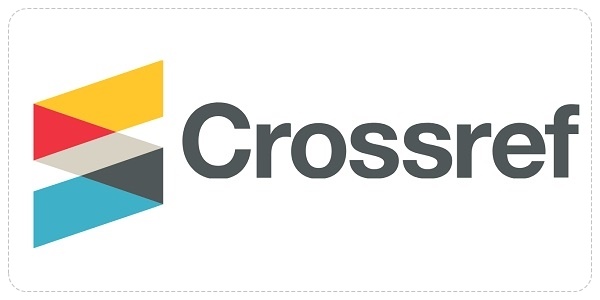The Sociotech Learning Model to Overcome the Low Students Employability Skills
Abstract
Keywords
Full Text:
PDFReferences
Azhar, K. A., & Iqbal, N. (2018). Effectiveness of google classroom : Teachers’ perceptions. Prizren Social Science Journal, 2(2), 52–66.
Budiyono. (2017). Pengantar metodologi penelitian pendidikan. Surakarta: UNS Press.
Deiniatur.(2019). The use of e-learning through google classroom to improve students’ articulation phonetic ability. ELT-Echo, 4(2), 114–121.
Duignan, G., Casley, S., Fraser, C., Haggerty, C., Hannam, S., Hitchcock, J., … Webster, A. (2018). Central Regional Hub-funded project - Teaching strategies that build employability skills of vocational education graduates. Wellington: Ako Aotearoa.
Fajaryati, N., Budiyono, Akhyar, M., & Wiranto. (2020). The employability skills needed to face the demands of work in the future : Systematic literature reviews. Open Engineering, 10(1), 595–603.
Fajaryati, N., Budiyono, Akhyar, M., & Wiranto. (2021). instrument development for evaluating students’ employability skills. Journal of Physics: Conference Series, 1842(1), 1–10.
Gill, R. (2018). Building employability skills for higher education students: An Australian example. Journal of Teaching and Learning for Graduate Employability, 9(1), 84–92.
Haghshenas, M. (2019). A model for utilizing social Softwares in learning management system of E-learning. Quarterly of Iranian Distance Education Journal, 1(4), 25-38.
Heggart, K. R., & Yoo, J. (2018). Getting the most from google classroom : A pedagogical framework for tertiary educators. Australian Journal of Teacher Education, 43(3), 140–153.
Johan, R. C., Sutisna, M. R., Rullyana, G., & Ardiansah, A. (2020). Developing online learning communities. In Borderless Education as a Challenge in the 5.0 Society (pp. 145-153). CRC Press.
Kalogiannakis, M., & Papadakis, S. (2017). Combining mobile technologies in environmental education: A Greek case study. International Journal of Mobile Learning and Organisation, 11(2), 108-130.
Khalil, Z. M. (2018). EFL students’ perceptions towards using Google Docs and Google Classroom as online collaborative tools in learning grammar. Applied Linguistics Research Journal, 2(2), 33-48.
Khandve, P., & Shelke, M. . (2016, January). Blended learning: The future of education industry. In 45th Annual National Conference at HVP Mandal’s College of Engineering & Technology (pp. 96-101).
Koloba, H. (2017). Perceived employability of university students in South Africa. Is it related to employability skills?. International Journal of Social Sciences and Humanity Studies, 9(1), 73-90.
Kraleva, R., Sabani, M., & Kralev, V. (2019). An analysis of some learning management systems. International Journal on Advanced Science, Engineering and Information Technology, 9(4), 1190-1198.
Krouska, A., Troussas, C., & Virvou, M. (2018). Comparing LMS and CMS platforms supporting social e-learning in higher education. In 2017 8th International Conference on Information, Intelligence, Systems & Applications (IISA) (pp. 1-6). IEEE.
Lane, S. (2016). Developing employability skills by using blended learning. American Journal of Educational Research, 4(1), 47–53.
McCutcheon, K., Lohan, M., Traynor, M., & Martin, D. (2015). A systematic review evaluating the impact of online or blended learning vs. face‐to‐face learning of clinical skills in undergraduate nurse education. Journal of advanced nursing, 71(2), 255-270.
Misra, R. K., & Khurana, K. (2017). Employability skills among information technology professionals : A literature review. Procedia Computer Science, 122(2017), 63–70.
Nathan, S. K., & Rajamanoharane, S. (2016). Enhancement of skills through e-learning : prospects and problems. The Online Journal of Distance Education and E-Learning, 4(3), 24–32.
Othman, H., Mat Daud, K. A., Ewon, U., Mohd Salleh, B., Omar, N. H., Abd Baser, J., … Sulaiman, A. (2017). Engineering students: Enhancing employability skills through PBL. In IOP Conference Series: Materials Science and Engineering (Vol. 203, No. 1, p. 012024). IOP Publishing.
Ouadoud, M., Chkouri, M. Y., & Nejjari, A. (2018). Learning management system and the underlying learning theories : Towards a new modeling of an LMS. International Journal of Information Science & Technology (IJIST), 2(1), 25–33.
Picciano, A. G. (2009). Blending with purpose : The multimodal model. Journal of Asynchronous Learning Networks, 13(1), 7–18.
Picciano, A. G., & Dziuban, C. D. (2007). Blended learning: Research Perspectives. USA: Sloan-CTM.
Rowe, A. D., & Zegwaard, K. E. (2017). Developing graduate employability skills and attributes: Curriculum enhancement through work-integrated learning. Asia-Pacific Journal of Cooperative Education, 18(2), 87–99.
Shaharanee, I. N. M., Jamil, J. M., & Rodzi, S. S. M. (2016). The application of google classroom as a tool for teaching and learning. Journal of Telecommunication, Electronic and Computer Engineering, 8(10), 5–8.
Sharan, Y., & Sharan, S. (1992). Expanding cooperative learning through group investigation. New York: Teachers College Press.
Singh, A., & Singh, L. B. (2017). E-Learning for employability skills: Students perspective. Procedia Computer Science, 122(3), 400–406.
Sudira, P., Santoso, D., Waluyanti, S., & Utami, P. (2020). Model of vocational teachers (Audio video engineering) efforts to support graduates’ work readiness. International Journal of Advanced Science and Technology, 29(1), 815–827.
Sudira, Putu, Santoso, D., Fajaryati, N., & Utami, P. (2018, 13 September). Incorporating the 21st century skills in the development of learning media for analog electronics practicum. In Journal of Physics: Conference Series (Vol. 1140, No. 1, p. 012020). IOP Publishing.
Sukmawati, S., & Nensia, N. (2019). The role of google classroom in ELT. International Journal for Educational and Vocational Studies, 1(2), 142–145.
Wagaskar, K., Tripathy, A. K., Chauhan, K., Malaji, A., & Yadav, D. (2017, 13-16 September). Employ… able: A tool to achieve 7E's of employability. In 2017 International Conference on Advances in Computing, Communications and Informatics (ICACCI) (pp. 1756-1761). IEEE.
DOI: https://doi.org/10.17509/pdgia.v21i1.55880
Refbacks
- There are currently no refbacks.
INDEXED BY

This work is licensed under a Creative Commons Attribution-ShareAlike 4.0 International License
















